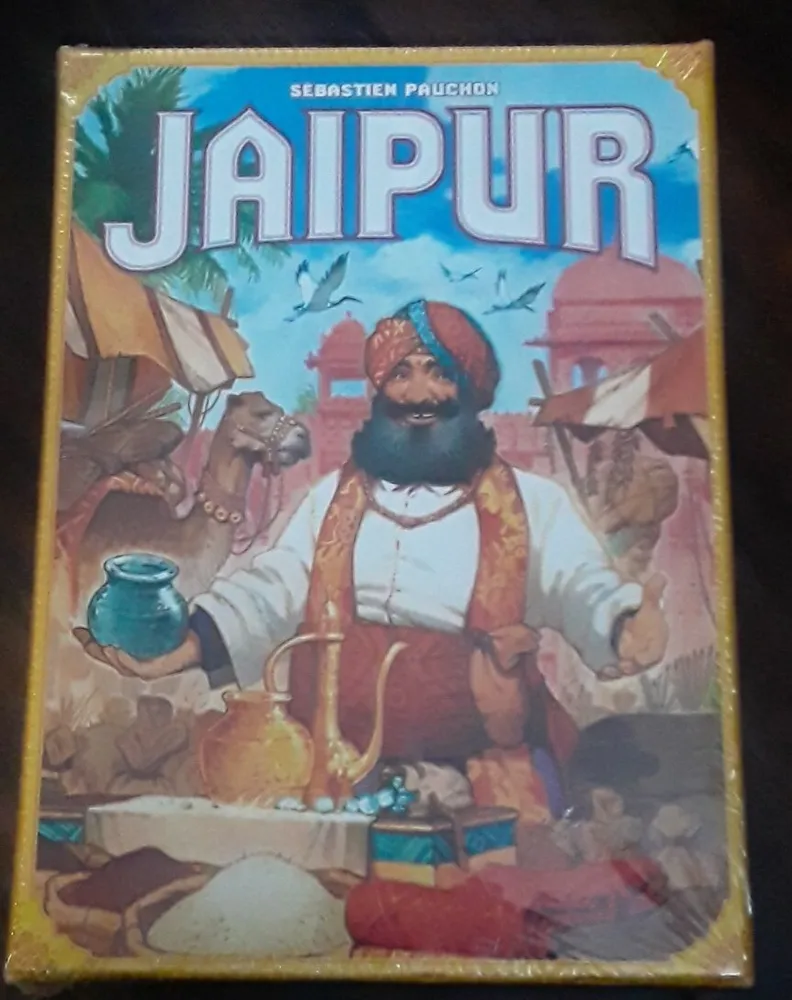Jaipur (2009)
Jaipur
Jaipur is a card game for two players that was created by Sébastien Pauchon in 2009 and published by Asmodee GameWorks. The game is set in the Indian city of Jaipur, where players assume the roles of powerful merchants hoping to become the personal trader of the Maharaja by amassing more riches than their opponent.
Why is Jaipur Popular?
Jaipur has received favorable reviews, with many acknowledging its simplicity yet sufficient depth. It has won several awards, including the 2010 Fairplay À la carte Winner (Germany), the 2010 International Gamers Award
– General Strategy: Two-players (Global), and the 2011 Games Magazine Best New Family Card Game Winner (USA). The game is also part of the Mind Sports Olympiad 2020 competition.
Game Components of Jaipur
How To Setup Jaipur
To set up Jaipur, each player starts with a hand of five random cards and a herd of camels placed in front of them. The market is initialized with three camels and two goods randomly drawn from the deck. Players arrange their cards and camels, ensuring their warehouses (hands) can hold only seven trade goods at once, while their camel herd can grow indefinitely.
Gameplay Mechanics and Game Objective
Mechanics
Game Objective
The objective is to receive two “Seals of Excellence” by earning the most points through buying, exchanging, and selling goods at optimal prices. Players must also manage their camel herds strategically, as camels are crucial for trading and can provide additional points.
Player Experience
Jaipur offers a fast-paced and strategic gameplay experience, blending tactics, risk, and luck. Players must intuitively identify lucrative deals and seal them before their opponent does. The game is a constant tug of war, with players leveraging their assets to bend the market in their favor. The simplicity of the game mechanics belies its depth, making it enjoyable for both seasoned gamers and newcomers.
Pros
Cons
Personal Thoughts on Jaipur
Jaipur is a brilliant game for couples, seasoned gamers, and anyone interested in strategic trading games. Its simplicity and depth make it an excellent introduction to more complex card games, while its quick playtime ensures it remains engaging without being overwhelming. However, players seeking infinite replay value or a game for larger groups may find it less appealing. Overall, Jaipur is a must-have for those who enjoy tactical card games with a touch of luck and market dynamics.
We are supported by our audience. When you purchase through links on our site, we may earn an affiliate commission, at no extra cost for you. Learn more.

